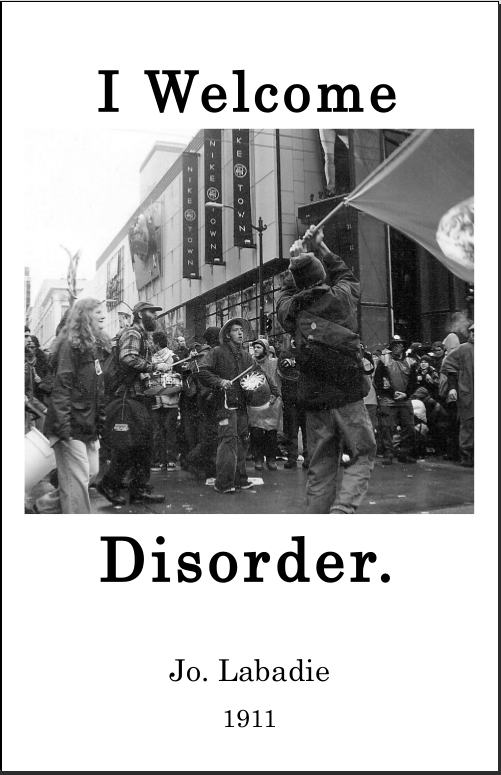C4SS has teamed up with the Distro of the Libertarian Left. The Distro produces and distribute zines and booklets on anarchism, market anarchist theory, counter-economics, and other movements for liberation. For every copy of Jo. Labadie’s “I Welcome Disorder” that you purchase through the Distro, C4SS will receive a percentage. Support C4SS with Jo. Labadie’s “I Welcome Disorder“.
$2.00 for the first copy. $1.00 for every additional copy.
The Anarchist press of the late 19th and early 20th century published more than just a series of newspapers, tracts, pamphlets and polemics. Besides analytical journals like Liberty and Mother Earth, and besides radical papers like The Alarm and The Blast, Anarchists and labor radicals also worked to build a broad culture of solidarity and resistance. Theoreticians, workers, story-tellers and dreamers also made cartoons, posters, poems, stories and labor songs. One of the most prolific of these authors was Jo. Labadie (1850-1933), who published radical labor pamphlets, tracts on Anarchist theory, and collections of his poetry and “labor songs” from his home print shop in Detroit, Michigan. Labadie’s songs and poems included Doggerel for the Underdog, “A Jaunt Along the River Rouge,” The Red Flag and Other Poems, and this standalone chapbook, “I Welcome Disorder,” a typical example of his radical poetry, which appeared in three editions in 1910, 1911, and 1933.
“I welcome disorder in the world of work!”
Jo. Labadie (1911)
Jo. Labadie was a working printer and a typographer, a leading labor organizer in Detroit, and the author of many tracts, letters, poems, and other writings on individualist Anarchism. Known in town as the “Gentle Anarchist,” Labadie worked as an organizer for the Knights of Labor, the Detroit Trades Council, Detroit Typographical Union 18, and the Michigan Federation of Labor. Labadie corresponded frequently and worked closely with Benjamin Tucker, the editor of Liberty, and developed a massive collection of writing, pamphlets, correspondence, and ephemera from his years in the labor movement and the Anarchist milieu. His collection, bequeathed to the University of Michigan in Ann Arbor, became the basis of the Labadie Collection, one of the largest and most important archives of radical literature in the united states.








